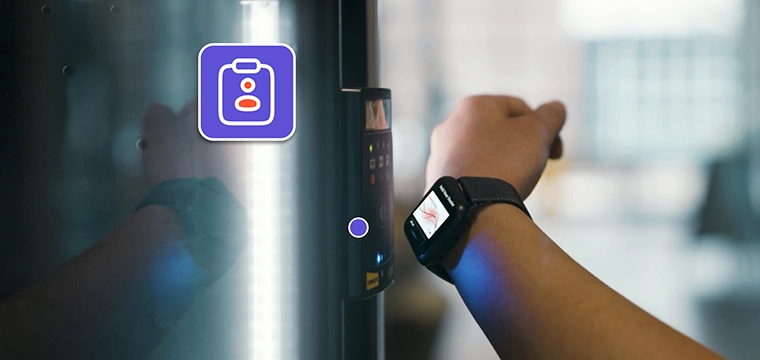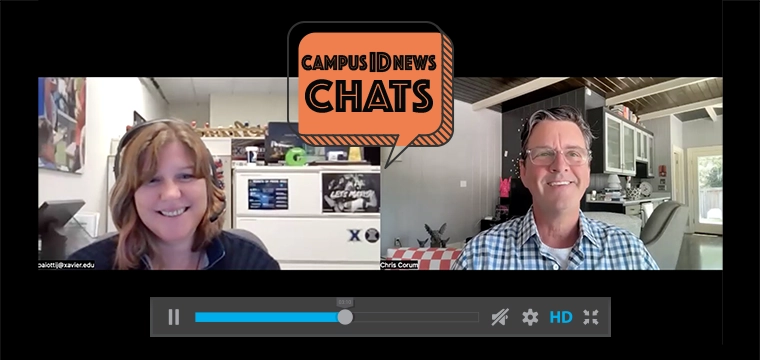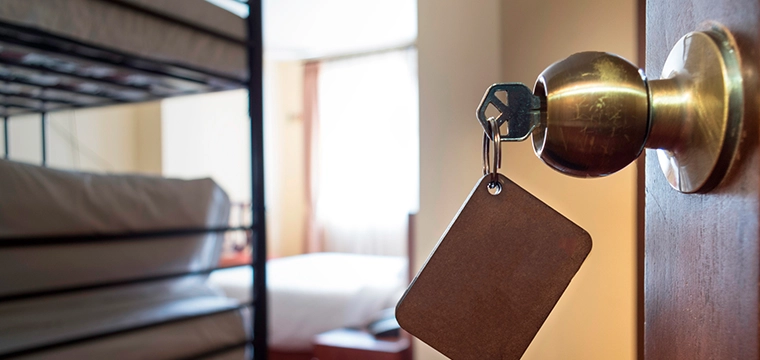No one begins a career path with the idea that he or she will someday manage a campus card program. The National Association of Campus Card Users’ new executive director would like to change that.
Consultant Lowell Earl Adkins, who helped make the Duke University card program one of the most comprehensive in the U.S., will assume his new duties March 1, two weeks before NACCU’s annual conference gets underway in San Antonio, Texas.
“I’ve been very close to NACCU since its inception,” said Mr. Adkins. ” I always thought this is another thing I would really like to do. I’m enjoying consulting, but this (the NACCU job) would be a way to increase the size of the congregation by a big bunch.”
“Mr. Adkins came highly recommended from professionals in the industry,” said NACCU’s president, Shirley Everson, University of Minnesota, when announcing his hiring. “He has a global view of the industry and brings this perspective to our organization. Our organization has been enjoying rapid growth as the technology that we use becomes more and more crucial to the delivery of services on college and university campuses. We are confident that Lowell can build upon this momentum and help us to create an even more dynamic, user-focused association.”
One of those focuses will be on professional development, said the 58-year-old Arizona resident during an interview with CR80News .
“In most cases, there have been very few people who are managers of card programs who were trained to do that,” said Mr. Adkins, who earned his Masters in Divinity degree from Duke and spent four years as an associate pastor in North Carolina.
“The industry has yet to evolve where there’s actually a career path. Most who are managers were doing something else, such as accountants, IT people, marketing, so they often came into their (card) program with a strength of what they were trained to do,” he added.
He only has to look at his own career progression.
After four years as a pastor, then three years as a contract administrator for an architect, he went back to Duke in foodservice as a dining hall manager. When the university’s food services program was being reorganized in the early 1980s, Mr. Adkins became the assistant director of support services, which included purchasing, some accounting, IT, and maintenance. This was his introduction to Duke’s card program.
“It was pretty primitive by today’s standards,” he said. “The only thing it did was control access to foodservice. We had to convert everything into points. The system couldn’t store dollars and cents, so hamburgers weren’t 35 cents, they were seven points…that’s how far we’ve come in 25 years.”
Not long after he became assistant director, Duke purchased a card system supplied by Harco, a company that would later be purchased by AT&T and become AT&T CampusWide prior to its purchase by Blackboard.
“Because we were handling a lot of electronic stuff in foodservice, it wasn’t long before I became more involved in the card program and eventually took it over,” he said. Again, it was first under foodservice before it came into its own as the DukeCard.
“At Duke, we were working with the vendor to help us expand. The vision was to eliminate, to the extent we could, cash as a method of payment. As time went on, the vision expanded to be a card that could be used for access control. What we now call payment management and access management, we wanted a single card system to handle,” he said.
But he said he quickly realized that while technology was a big component of a card program’s success, “no matter how golly gee whiz it is, it doesn’t work without strong customer service. They’ve got to feel good about getting the original card in their hands and all that goes with that. In my view, our real claim to fame was having really strong customer service.”
After helping make the DukeCard what it is today, Mr. Adkins left the university environment and joined AT&T CampusWide in 1997 in product development.
“It was an intense time because of Y2K. People were really anxious that at the stroke of midnight, the world was going to come crashing down. Had we all not invested time and effort, there could have been a problem,” he said of his Y2K experience.
In 1999 he was named vice president of CampusWide and in 2001, following the acquisition of CampusWide by Blackboard, he was named general manager for the commerce and access solutions division.
“(While I) enjoyed my time at CampusWide and Blackboard, when you’re a vendor, you’re often seen as only a vendor. I always felt like I wanted to get back in that role of working with schools and helping them make progress.”
So he started his own consulting firm in 2002 but just three months later saw the chance to become part of a larger organization. He went to work for Duvall Group Consulting as a vice president.
“People ask me, ‘Where do you start a card program? With vending, laundry…?’ We didn’t have all that when the card program started up at Duke. But in today’s world with companies selling systems that include laundry, foodservice, vending, copying, security, access control, today schools struggle with where they want to dig in, so they ask: ‘Where do we start?’” said Mr. Adkins.
He said there are 3,500 institutions of higher education in the U.S., but “there are maybe 30% that have what I would call a comprehensive card program, that truly spans most of the services on campus.”
That leads him to his two-pronged approach for NACCU: Professional development and helping universities see just what they’re card programs are capable of accomplishing.
“I’m going to be really big in encouraging education, or professional development. The bottom line is that there are a lot of programs that are creatures of the strength of the people in those programs. Many need to be able to stand back and understand management of card programs. I feel very strongly about this. I don’t know whether we’ll formalize it in a course at a school, or as a certification program. What I do see is NACCU being involved in some way.”
He said he wants NACCU to “work with our business partners and with our members about where technology is going. It’s going to be interesting and challenging. What we don’t want to happen is to get surprised. We don’t want society to move off in some direction, whether its chip cards, or biometrics, and we’re playing catch-up.”
NACCU’s next big step? “It’s hard to say right now. There’s a lot of technology vying for space in the market. Chip cards are making an effort to gain traction in North America. It feels to me that contactless may happen. The smart card industry struggled for some traction, but as more and more public transportation systems have adopted chip cards, people, i.e. students, are getting used to them.”
“9-11 certainly raised the consciousness about security,” he said. “But on the other hand, it changed the focus; people started looking at security as terrorism. College administrators shifted their focus from what has always been there, the petty thieves, the punks. That hasn’t gone away but the emphasis on security has shifted from that real problem.”
He said he has “been a little disappointed that since 9-11 there has not been as much emphasis on physical security as I’d like to see. Rather, the emphasis has been on IT and on virtual security.”
As to the future of card programs, Mr. Adkins feels there’s still much to be tapped “both in breadth and depth. We haven’t really gotten nearly enough participation in card programs. There is tremendous opportunity there, particularly with community colleges. The administrators have got to feel pretty good, what with President Bush recognizing community colleges as vital to our overall education system. They’re coming to the forefront. A lot of community colleges had the view they didn’t need card programs because they didn’t have residents. But there are a number of community colleges with very successful card programs.”
Another area for growth is in increasing the uses of the technology on campuses. “There are a lot of schools that have gone the whole way, but a whole lot more that are only in foodservice. Even schools that are members of NACCU, you ask them if they have a card program, and they do, but not as much as it could be.”
The challenges for Mr. Adkins as executive director of NACCU “is getting them (colleges) to see their card program in all its aspects, in the broader context of all the things they can do on a campus. Truly there are no limits to what a program can be. If you think of it as a service provider, there are things a university needs, a whole range of services a college needs to have happen for them. If I’m a card administrator, I need to back off and take a look at what are the range of possibilities for taking care of my constituents in a card program.”




